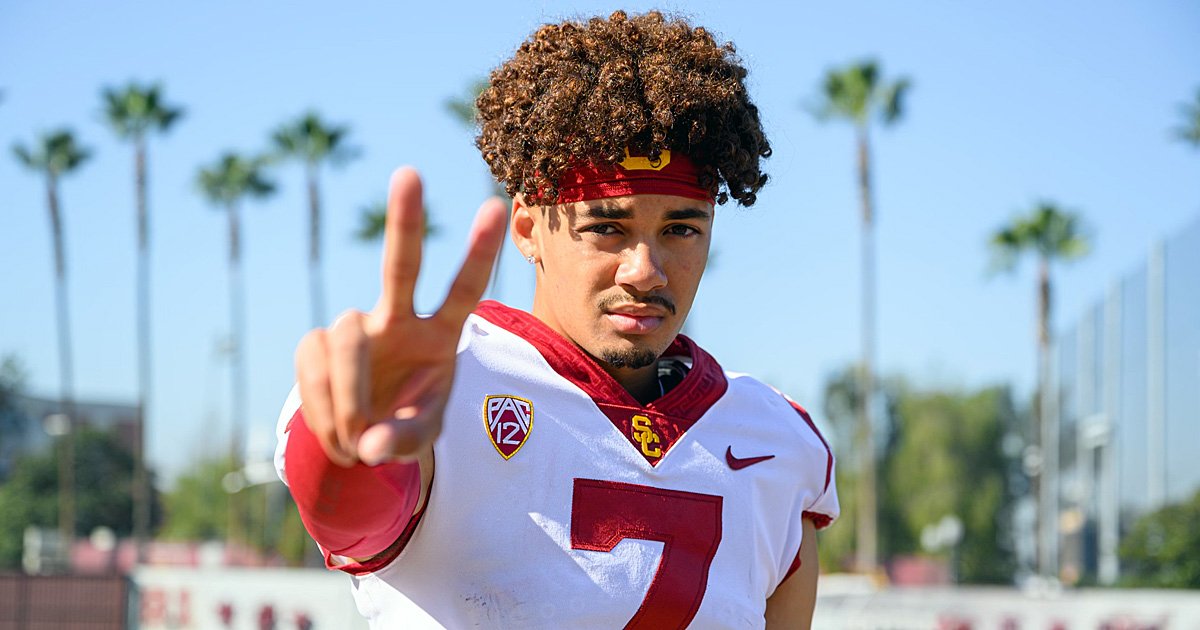
USC Football Commit Malachi Nelson Announces First NIL Deal: A Game-Changer in College Athletics
Introduction
On June 28, 2023, highly touted USC football commit Malachi Nelson became the first college athlete to sign a name, image, and likeness (NIL) deal with a major brand. Nelson, a five-star quarterback prospect, inked a multi-year deal with Beats by Dre. This groundbreaking partnership marks a significant milestone in the rapidly evolving landscape of college athletics, raising profound questions about the future of player compensation and the role of brands in shaping the sport.
The Impact of NIL on College Athletics
The introduction of NIL deals has revolutionized college athletics. Before 2021, student-athletes were prohibited from profiting from their name or image. However, with the NCAA’s adoption of new NIL rules, players can now capitalize on their personal brands through endorsements, sponsorships, and other revenue-generating activities.
The impact of NIL has been substantial. Top athletes are now able to earn significant sums of money, with some high-profile stars commanding million-dollar contracts. This has led to a paradigm shift in the way players view their relationship with college sports. For many, it is no longer solely about the pursuit of athletic glory but also about maximizing their earning potential.
Nelson’s Deal and the Future of Recruitment
Nelson’s NIL deal with Beats by Dre is a watershed moment for college football recruitment. Historically, the allure of playing for top programs and the pursuit of a national championship were primary motivations for elite recruits. However, NIL deals introduce a new dimension to the recruiting process. Top prospects will now weigh financial incentives alongside athletic opportunities when making their college choices.
This shift has potential consequences for the balance of power in college football. NIL deals could give certain schools a significant advantage in attracting and retaining the best players. Programs with strong financial backing and established brand partnerships may be able to offer more lucrative NIL contracts, potentially creating a widening gap between “haves” and “have-nots.”
Ethical and Legal Considerations
The rise of NIL deals also raises important ethical and legal considerations. Critics argue that NIL deals could undermine the integrity of college sports and lead to pay-for-play schemes. They also raise concerns about potential conflicts of interest and the impact of corporate sponsorship on athletic decisions.
To address these concerns, the NCAA has implemented regulations governing NIL activities. These regulations include limits on the value of NIL deals, restrictions on endorsements from certain industries, and disclosure requirements for athletes. However, some experts believe that these regulations may not be sufficient to prevent abuses and ensure a fair and equitable system.
Perspectives from Stakeholders
The introduction of NIL deals has elicited diverse reactions from various stakeholders in college athletics.
College Athletes:
Many college athletes welcome the opportunity to capitalize on their name and image. They argue that NIL deals provide them with financial compensation for their hard work and dedication. They also believe that NIL deals empower them with more control over their personal brands and future careers.
College Coaches:
Some college coaches are enthusiastic about NIL deals, seeing them as a way to enhance the student-athlete experience. They believe that NIL deals can provide athletes with valuable opportunities to develop their business acumen and professional networks. However, other coaches are concerned about the potential impact of NIL deals on team chemistry and competitive balance.
NCAA:
The NCAA has taken a cautious approach to NIL, balancing the need for player compensation with the preservation of amateurism and fair play. The NCAA has implemented regulations governing NIL activities, but it remains to be seen whether these regulations will be effective in addressing the challenges posed by NIL.
Conclusion
The introduction of NIL deals into college athletics is a transformative moment with far-reaching implications. NIL deals provide student-athletes with unprecedented opportunities for financial gain but also raise important ethical and legal considerations. As the NIL landscape continues to evolve, it will be essential for stakeholders to navigate these challenges and ensure that NIL deals benefit student-athletes, promote fair play, and preserve the integrity of college sports.
